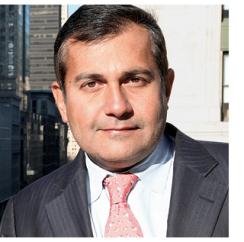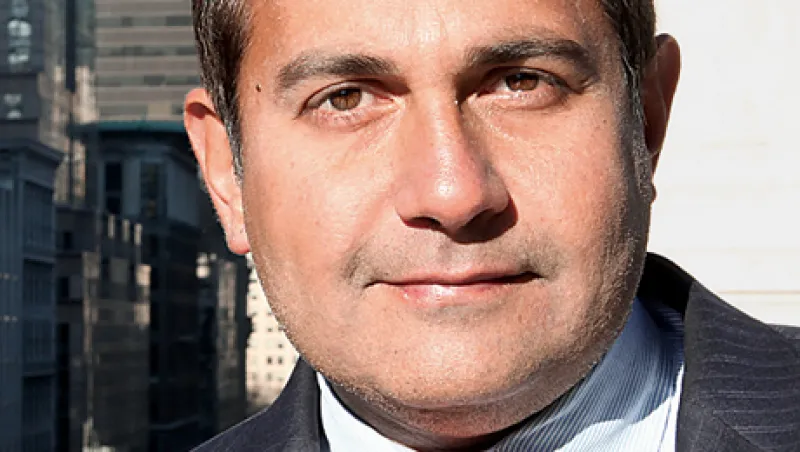Something important happened in Iraq recently, and it wasn’t the tenth anniversary of the U.S.-led invasion. In February, Asiacell Communications, the country’s largest mobile phone company, raised almost $1.3 billion by selling 25 percent of its shares on the Iraq Stock Exchange. The biggest IPO in the Middle East since 2008, it was a turning point for Iraq , says Sanjay Motwani, founder and president of New York– and Singapore-based Sansar Capital Management. Sansar, which has invested some $27 million in Iraq since 2011, was one of the first foreign investment firms to enter the local market. Motwani, 43, spent eight years as investment manager at New York’s Kingdon Capital Management before he launched Sansar in 2005. Senior Writer Aaron Timms spoke to him recently about the changes he’s seen in Iraq, how the nation of 32 million is poised for rapid growth and why it’s still a verdant, little-contested pasture for smaller funds like his.
How has the Iraqi market changed over the three years that you’ve been traveling and investing there?

Is there much room to move beyond this initial growth spurt?
The earnings are coming off a low base, but market-cap-to-GDP in Iraq is still 8 or 9 percent. That’s well below other countries in the region. Across the Middle East the ratio is probably closer to 55 percent. So there’s a lot of room to move there. And lots of the companies are hugely undervalued. Take Iraqi Middle East Investment Bank. In many other emerging markets, a lot of the very fast-growing banks trade at 20, 30 times earnings. Here you have a bank that trades at 4 times earnings. There’s huge catch-up potential. People were storing money under their mattresses during the Saddam Hussein era, and now that money is gradually creeping back into the banking sector.
Has it been difficult to gather reliable information on individual companies?
It’s been a huge challenge. When we started, we had a very tough time getting conference calls. There’s no equity culture; this is not America, where executives are getting hundreds of millions of dollars in compensation based on the price of the stock. But things have changed for us. No. 1, we have an Arabic speaker on our team. We’ve found cases where issues have been highlighted in the footnotes to company accounts but those issues have then been omitted from the English translation. No. 2, we’ve been to Iraq a few times. By coming to Baghdad we’ve gained a lot of respect.
When do you expect larger funds to take a more active interest in Iraq?
The biggest impediment to foreign funds coming in is the lack of a global custodial service. The HSBCs and Standard Chartereds of the world coming in would give a lot of confidence to some of the big investors. But [the banks] will only come in once there’s a big wave of demand, so it’s kind of a chicken-and-egg scenario. That provides people like us who are already in Iraq with a phenomenal opportunity. The market will undoubtedly go up once the big custodial services get here. The market’s not very liquid; it’s not possible to allocate significant sums of money without having a significant impact on the price of the stock.
How much of a concern is security?
When there’s a bomb, I don’t rush to the phone and tell my broker to sell the stock. If anything, I’m more inclined to buy. Even when it’s a very bad bomb blast, the market generally has zero correlation with [the security situation]. We’re in the market for the long run, and I imagine many of the other people who are here right now have a similar opinion. The CNN effect is so persuasive that most foreign investors who call Iraqi companies spend most of the call talking about car bombs. But if I’m sitting in the same room with the executives in Baghdad, I don’t spend an hour saying, “Ooh, what do you think about the latest car bomb?” It’s irrelevant. You talk about the fundamentals and the performance of the company instead. And they give you a huge amount of respect because of that.







